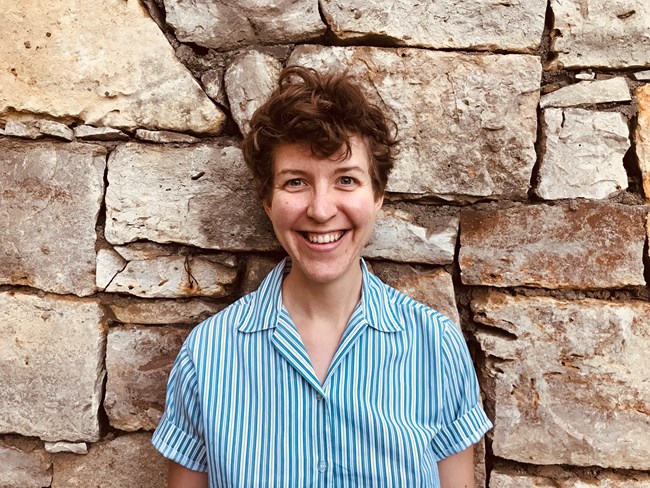Last updated: February 25, 2025
Article
Meet the Mellon Fellows: Dr. Sophia Ford

Dr. Sophia Ford
University of Oregon
PhD, Environmental Science, Studies and Policy
Host Site: Intermountain Regional Office
Fellowship Title: West of the American Revolution: Placemaking, Belonging, and Identity in the Intermountain Region
Project Description: Much of the programming commemorating the 250th anniversary of the signing of the Declaration of Independence will emphasize people, places, and events in the eastern US. The Intermountain West, however, also has rich histories from this period and beyond. Lands taken to form parks across the West were home to Indigenous people from time immemorial, as well as Spanish colonists and their descendants during the Revolutionary Era. Dr. Ford will assist parks with researching the Revolution and its legacies in the Intermountain West and making meaningful connections across the region and for visitors; and developing interpretive models that parks across the NPS can use to connect to the broader themes of America at 250.
Bio:
Dr. Sophia Ford holds a Ph.D. in Environmental Studies, Science, and Policy, and Geography from the University of Oregon. Dr. Ford's research explores the intersections of race, gender, cultural memory, and political geography. Growing up in rural Kansas shaped Dr. Ford's dissertation, which investigates the evolving dynamics of white nationalism, pro-private property activism, and authoritarian organizing within debates over public memory. The research traces the transformation of far-right organizations from early 20th-century support for federal initiatives to contemporary opposition framed through the lens of private property rights.
Sophia earned a B.S. in Geology from Kansas State University in 2013. After graduation, Dr. Ford worked as an environmental scientist, monitoring toxic pollution from U.S. military activities across the Midwest. From 2017 to 2019, Sophia served in the Peace Corps in Malawi, collaborating with the Department of Forestry on afforestation projects. This experience deepened Sophia's understanding of global environmental injustices and the enduring roles of imperialism, colonialism, and white supremacy. Following this, Dr. Ford completed an M.S. in Environmental and Energy Policy at Michigan Technological University, partnering with the Great Lakes Indian Fish and Wildlife Commission. The work focused on mapping mineral ownership across the Lake Superior watershed and supporting Indigenous sovereignty through land-back efforts by identifying subsurface property owners in the Great Lakes region.
Tell us about your research interests!
Dr. Ford's research explores the intersections of race, gender, class, cultural memory, and political geography, with a focus on how historical narratives are constructed, maintained, and contested. This work critically examines how dominant narratives serve to uphold existing power structures, often reinforcing systems of white supremacy, patriarchy, and racial capitalism. Through an interdisciplinary approach, Dr. Ford investigates how these narratives shape social hierarchies, influence public policy, and legitimize unequal distributions of power and resources. A central focus of Dr. Ford's research is the role of the state and private organizations in shaping and narrating the past. This involves analyzing how state-sponsored commemorative practices, such as monuments, national holidays, and educational curricula, legitimize specific interpretations of history that align with dominant political ideologies.
What are you most excited about as you begin your fellowship?
I am eager to collaborate with communities, particularly those systemically excluded, on the history of the Intermountain West. I look forward to co-creating public narratives that offer a fuller understanding of U.S. history while directly addressing the ongoing legacies of white racial dominance and settler colonialism. Through collaborative research, public history initiatives, and community partnerships, I aim to challenge dominant historical paradigms, highlight enduring injustices, and foster dialogue that promotes social justice and meaningful historical reckoning.
